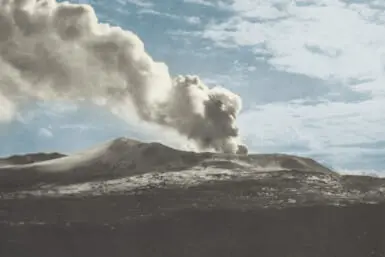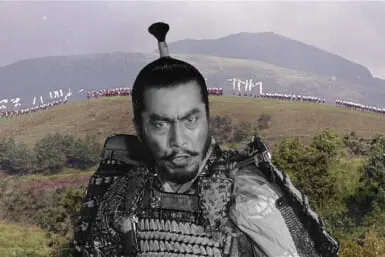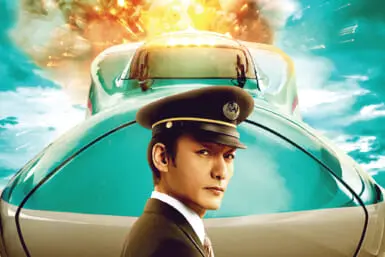The 94th Academy Awards take place on Sunday (Monday morning Japan time) with Ryusuke Hamaguchi’s Drive My Car nominated in four categories, including Best Picture. There’s no doubt that the three-hour drama is deserving of its nominations, but there have also been some amazing movies from this country that weren’t recognized by the Academy. Here we look at seven Oscar-worthy Japanese films that received no nominations.
1. Tokyo Story — Yasujiro Ozu (1953)
In the early 1950s, three Japanese films won honorary Oscars in the International Feature Film category. Unfortunately, Tokyo Story wasn’t one of them. Given the fact that Yasujiro Ozu wasn’t known internationally when it was released, it never really had a chance. Exporters considered his work “too Japanese,” and, therefore, unlikely to sell well abroad. That changed after Tokyo Story won the British Film Institute’s inaugural Sutherland Trophy in 1958.
Inspired by Leo McCarey’s tearjerker Make Way for Tomorrow, Ozu’s masterpiece is a simple yet poignant tale about generational conflict. Elderly couple Shukichi (Chishu Ryu) and Tomi Hirayama (Chieko Higashiyama) travel from the fishing village of Onomichi to the capital to visit the families of their two eldest children, who barely have time for them. Nothing dramatic or suspenseful, just one of the most powerful and moving films ever made.
2. Sansho the Bailiff — Kenji Mizoguchi (1954)
Along with Ozu and Akira Kurosawa, Kenji Mizoguchi is known as one of the “Big Three of Japan’s Golden Age of Cinema.” The only one of his movies to receive an Oscar nomination, however, was Ugetsu for Best Costume Design (Tadaoto Kainosho) in 1956. According to Martin Scorsese, that film along with The Life of Oharu and Sansho the Bailiff “stand at the summit of cinema.”
Of the three, Sansho the Bailiff is the one that most tears at the heartstrings. It tells the story of two aristocratic children, Zushio (Yoshiaki Hanayagi) and Anju (Kyoko Kagawa). On their way to meet their exiled father, they get separated from their mother and sold into slavery. The film is named after its villain, Sansho (Eitaro Shindo), a despicable human running a brutal prison camp of forced labor.
3. Harakiri — Masaki Kobayashi (1962)
Masaki Kobayashi’s anti-establishment classic Harakiri turns 60 this year. Widely regarded as one of the greatest ever Japanese movies, it picked up the Special Jury Award at the 1963 Cannes Film Festival. Surprisingly, though, it wasn’t submitted by Japan for the Best Foreign Language Film Award at the Oscars. Kon Ishikawa’s comedy Being Two Isn’t Easy was chosen instead, but wasn’t accepted as a nominee.
Harakiri begins with ronin Hanshiro Tsugumo (Tatsuya Nakadai) arriving at the gates of the prosperous Iyi clan. He requests to commit seppuku within the courtyard of the palace, but first asks for permission to tell a story. This ultimately leads to a ferocious battle. “All of my pictures are concerned with resisting an entrenched power. That is what Harakiri is about,” said Kobayashi.
4. Merry Christmas Mr. Lawrence —Nagisa Oshima (1983)
Ryuichi Sakamoto won a Best Original Score Oscar for Bernardo Bertolucci’s 1987 film The Last Emperor. The music he composed for Merry Christmas Mr. Lawrence five years earlier, however, was arguably even more impressive. As Haru (Takeshi Kitano) and Lawrence (Tom Conti) bid farewell to each other at the end, the haunting title track slowly kicks in. It’s a powerful scene made that much more memorable by the music.
Nagisa Oshima’s moving film was also unlucky to miss out on a nomination for Best International Feature. The story is based on Sir Laurens Jan van der Post’s experiences at a Japanese prisoner of war camp in 1942. David Bowie plays Jack Celliers, a British soldier held at the camp, which is led by Captain Yonoi (Sakamoto). Clearly attracted to Celliers, Yanoi treats him better than other prisoners.
5. Ring — Hideo Nakata (1998)
Of the more than 3,000 Oscar statuettes that have been handed out since the ceremony’s inception in 1929, very few have been given to horror movies. As for Japanese horror films, only Kobayashi’s 1965 anthology of ghost stories Kwaidan made the shortlist. Acclaimed J-horrors of the late-1990s and early-2000s were overlooked. That includes the likes of Cure (Kiyoshi Kurosawa), Audition (Takashi Miike) and Dark Water (Hideo Nakata).
The J-horror that made the biggest impact internationally was Ring. Nakata’s groundbreaking psychological thriller begins with Tomoko (Yuko Takeuchi) and Masami (Hitomi Sato) on a sleepover discussing a videotape. According to the latter, those that watch it receive a foreboding phone call, cursing them to die in seven days. After Tomoko says she saw a strange tape a week earlier, the phone starts ringing.
6. Nobody Knows — Hirokazu Koreeda (2004)
Hirokazu Koreeda earned his first Oscar nomination for the 2018 critically acclaimed family drama Shoplifters. In truth, though, he should have received one long before that. From After Life to Our Little Sister, many of his films could have been in the running for a Golden statuette. His 2004 movie Nobody Knows was submitted by Japan for Best International Feature, but was eventually overlooked by the Academy.
The harrowing film tells the story of four children forced to fend for themselves after their mother takes off. It’s loosely based on the Sugamo child abandonment case in 1988 in which two siblings died and three others were discovered on their own in an apartment, severely malnourished. Koreeda’s version is slightly less distressing. Yuya Yagira, who played the eldest son, became the youngest winner of the Best Actor award at the Cannes festival.
7. Your Name — Makoto Shinkai (2016)
Since the Academy Award for Best Animated Feature was introduced in 2001, there has only been one Japanese winner. That was Hayao Miyazaki’s Spirited Away in 2002. Since then, all the nominees from this country have been Ghibli productions except for Mamoru Hosoda’s Mirai in 2018. One of the most surprising omissions was Makoto Shinkai’s Your Name, the third-highest grossing anime film of all time.
The story centers around two teenagers of the opposite sex who swap bodies. “Please make me a handsome Tokyo boy in my next life,” pleads country girl Mitsuha. The idle wish comes true sooner than expected, as she wakes up in the body of popular 11th grader, Taki. He now has breasts, which he can’t stop fondling. The premise is a simple one, yet this is an imaginative and thought-provoking film with breathtaking imagery.
Feature image by Anna Petek









